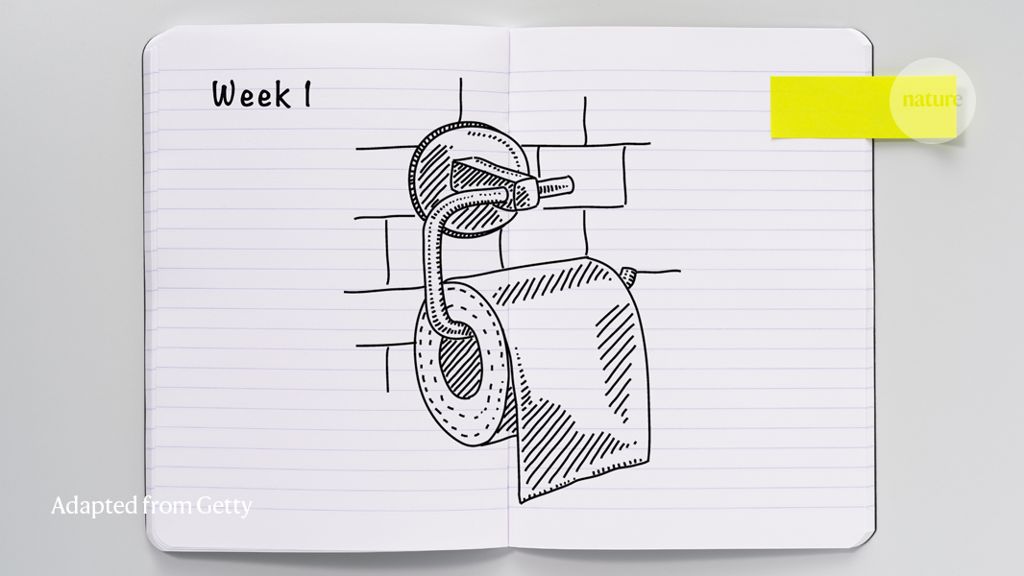Twenty years after starting my PhD and 12 years into running my own research group, focusing on respiratory infections, at Imperial College London, I would describe myself as a mid-career scientist. With the job title of reader (somewhere between an associate and full professor), I’m seen as impossibly old by my PhD students, and as a relative newbie by the more senior profs.
Of course, that was under normal circumstances.
We are no longer under normal circumstances, in the United Kingdom and around the world. We haven’t been for several weeks, as a result of the spread of COVID-19, and the consequent social lockdown. To help navigate through the current experience, I have started a diary, which Nature has agreed to publish week by week where possible. I hope that my experience will be similar to that of other scientists — not those on the front line in the wards, or developing diagnostics, vaccines and cures, but the vast majority of us, at every level of career, who are now adjusting to life away from the lab. Hopefully it will make someone, somewhere, smile and realize we are all going through versions of the same experience.
I realize that compared to many scientists and many more members of the public worldwide, I am in a privileged position. I’m a tenured principal investigator so most likely will have a job to return to, and I have a house with a garden, which holds more than three rolls of toilet paper. But the uncertainty is unsettling as we step into the unknown with all kinds of issues: what happens to the economy and what that might mean for science; the likelihood of getting a nasty infection; uncertainty over when I will be able to buy more bread flour.
In addition to being an academic, I am a father to children aged 10 and 12, and a husband to my wife, who is also a scientist. So for both of us, one of the biggest challenges is going to be how to fit full-time work around looking after the children. Under normal circumstances, parenting is mostly logistics. We just about balance childcare through a combination of school, clubs and child-minders. This juggling act gives us enough time to fit in most of a week’s work.
Given that my family is all now at home more or less 24/7, apart from the time allowed for exercise in the UK government’s guidelines, things are going to have to change. In future columns, I will try to chart the changes I go through and identify what, if anything, has worked in balancing home, career and personal life. But I’ll also aim to share the things that haven’t. I’m already keen to write about the loss of identity I’ve felt with closing my lab, how I’m trying to maintain a healthy relationship with social media, the challenges of remote supervision and how to make the tallest Lego tower to win the school competition. In addition to my home family, I still have responsibility to my work family — the students and staff members who work in my lab — and I’m still working out the best way of maintaining contact and keeping the science going.
One of the things I love about academia is the predictable patterns. The year starts in October; grant opportunities come and go. Having never really worked full-time anywhere other than academia, not counting the summer job in the refrigerated warehouse, the idea of doing anything different is terrifying. But here is an opportunity, unsought. Maybe we can all try different ways of working and being with our families. Then again, it might just be awful. Like everyone else, I’m still working it out.



